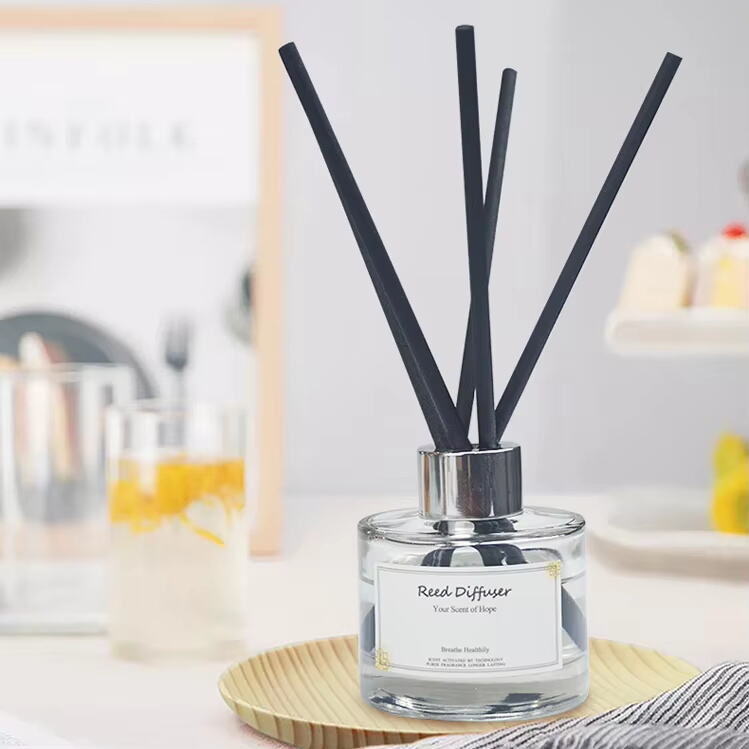El uso de un difusor de aceites puede transformar tu espacio, pero los errores comunes pueden reducir su efectividad o incluso representar riesgos de seguridad. El uso incorrecto puede llevar a peligros eléctricos o a una exposición excesiva a los aceites esenciales. Al seguir prácticas seguras, aseguras una mejor experiencia de aromaterapia mientras proteges tu salud y el entorno de tu hogar.
Errores Comunes en el Uso Excesivo del Difusor
Riesgos de la Difusión Prolongada
Hacer funcionar tu difusor durante períodos prolongados puede parecer inofensivo, pero puede llevar a varios problemas. La sobreexposición a aceites esenciales puede irritar tu sistema respiratorio o causar dolores de cabeza. Algunos aceites, cuando se difunden durante demasiado tiempo, pueden incluso desencadenar reacciones alérgicas. La difusión prolongada también corre el riesgo de saturar el aire, lo que reduce la efectividad del aroma y crea un ambiente abrumador. Además, hacer funcionar el difusor continuamente puede sobrecargar su motor, acortando su vida útil.
Directrices de Uso Recomendadas
Para evitar estos problemas, sigue pautas de uso simples. Limita tus sesiones de difusor a 30–60 minutos a la vez. Esta duración permite que los aceites esenciales se dispersen de manera efectiva sin abrumar el espacio. Si deseas disfrutar del aroma durante todo el día, considera usar configuraciones intermitentes. Muchos difusores ofrecen opciones como 10 minutos encendido y 20 minutos apagado, lo que ayuda a mantener un aroma equilibrado mientras se preserva el dispositivo. Siempre revisa las instrucciones del fabricante para recomendaciones específicas.
Errores Comunes en las Prácticas de Limpieza
Por Qué la Limpieza Regular es Importante
Limpiar su difusor regularmente asegura que funcione correctamente y ofrezca la mejor experiencia de aromaterapia. Los residuos de aceites esenciales pueden acumularse con el tiempo, obstruyendo el difusor y reduciendo su efectividad. Esta acumulación también puede mezclar olores, creando olores desagradables. Negligir la limpieza puede llevar al crecimiento de moho o bacterias, lo que representa riesgos para la salud. Un difusor limpio no solo dura más, sino que también proporciona un aroma puro y consistente.
Errores a Evitar Durante la Limpieza
Evite errores comunes al limpiar su difusor. Nunca use productos químicos agresivos o herramientas abrasivas, ya que pueden dañar el dispositivo. No sumerja el difusor en agua a menos que el fabricante especifique que es seguro. Saltarse la limpieza regular permite que los residuos se acumulen, lo que puede obstruir el difusor y afectar su rendimiento. Siempre siga las instrucciones del fabricante para evitar daños accidentales.
Preocupaciones de Seguridad y Precauciones
Proteger su Difusor de los Niños
Los niños son naturalmente curiosos, y un difusor puede captar fácilmente su atención. Coloca tu difusor fuera de su alcance para evitar derrames accidentales o quemaduras por agua caliente. Evita usar aceites que puedan causar irritación si se tocan o se inhalan en altas concentraciones. Asegura el cable de alimentación para evitar peligros de tropiezo. Si tu difusor tiene piezas pequeñas, asegúrate de que estén bien sujetas para prevenir riesgos de asfixia. Tomar estas precauciones mantiene a tu hijo seguro mientras disfrutas de la aromaterapia.
Prevención de Peligros Eléctricos y de Incendio
El uso inadecuado de tu difusor puede llevar a peligros eléctricos o de incendio. Siempre utiliza el adaptador de corriente correcto y evita sobrecargar los enchufes. Coloca el difusor en una superficie estable y resistente al calor, lejos de materiales inflamables como cortinas o papel. Nunca dejes el difusor funcionando sin supervisión, especialmente durante la noche. Inspecciona regularmente el cable de alimentación en busca de daños y reemplázalo si es necesario. Seguir estos pasos asegura que tu difusor funcione de manera segura y reduce el riesgo de accidentes.
Elegir los Aceites Esenciales Adecuados
Identificar Aceites de Alta Calidad
Elegir aceites esenciales de alta calidad asegura que obtengas la mejor experiencia en aromaterapia. Los aceites de baja calidad a menudo contienen aditivos sintéticos o rellenos que diluyen sus beneficios. Para identificar un buen aceite, revisa la etiqueta en busca del nombre botánico de la planta. Este detalle muestra que el aceite es puro y no una mezcla de sustancias desconocidas. Busca aceites almacenados en frascos de vidrio oscuro. Estos frascos protegen el aceite de la luz solar, que puede degradar su calidad. Las marcas de confianza suelen proporcionar información sobre el origen del aceite y su método de extracción. Los aceites prensados en frío o destilados al vapor suelen ser las mejores opciones. Siempre compra con vendedores de confianza para evitar productos falsificados.
Aceites a Evitar por Salud y Seguridad
No todos los aceites esenciales son seguros para todos. Algunos aceites, como la canela o el clavo, pueden irritar la piel sensible. Otros, como el eucalipto o la menta, pueden no ser adecuados para niños pequeños o mascotas. Evita los aceites etiquetados como "aceites de fragancia" o "aceites de perfume". Estos son sintéticos y carecen de beneficios terapéuticos. Siempre diluye los aceites esenciales antes de usarlos para prevenir reacciones adversas. Si tienes alergias o condiciones de salud, consulta a un profesional de la salud antes de usar nuevos aceites. Ser cauteloso te ayuda a evitar errores comunes que podrían perjudicar tu salud.
Evitar errores comunes en el uso de difusores de aceite asegura una experiencia de aromaterapia más segura y placentera. La limpieza regular, la selección adecuada de aceites y la colocación consciente mejoran los resultados y extienden la vida útil de tu difusor. Al adoptar estas prácticas, creas un ambiente más saludable mientras maximizas los beneficios de los aceites esenciales para el bienestar a largo plazo.

